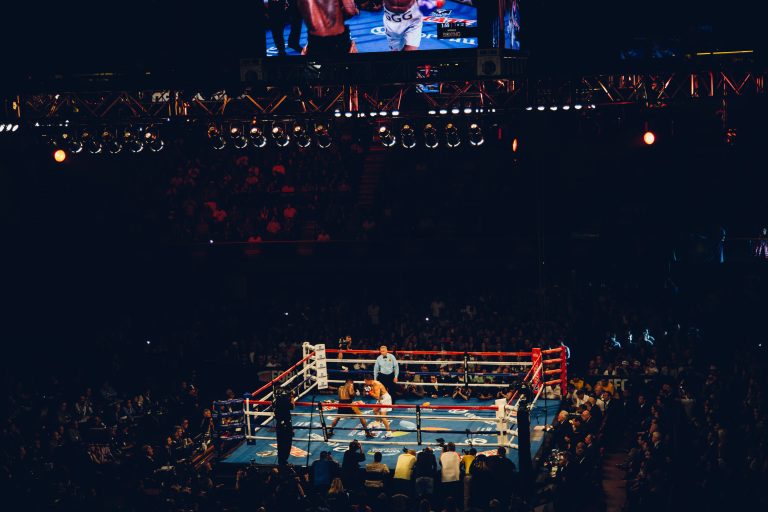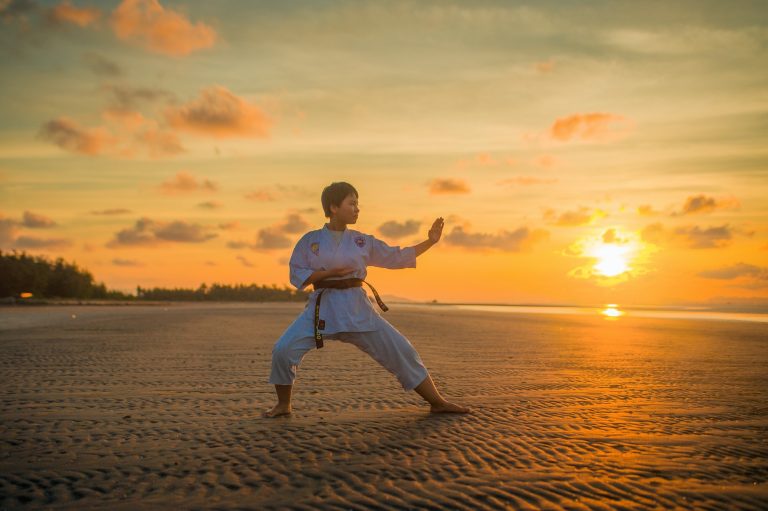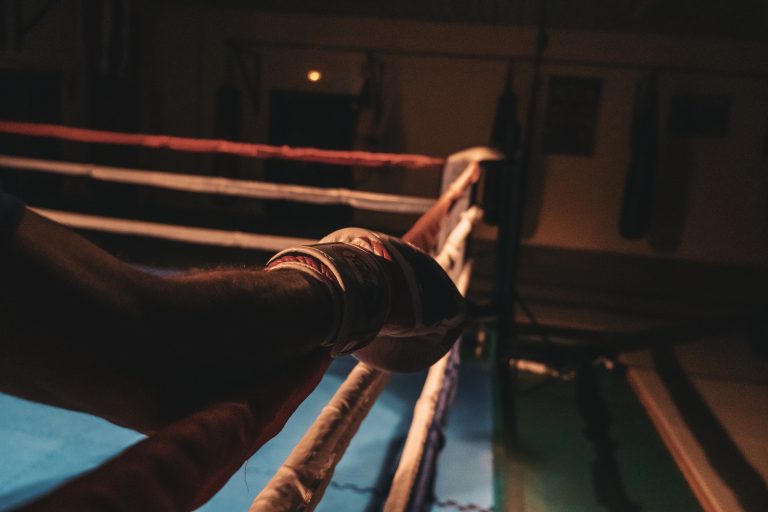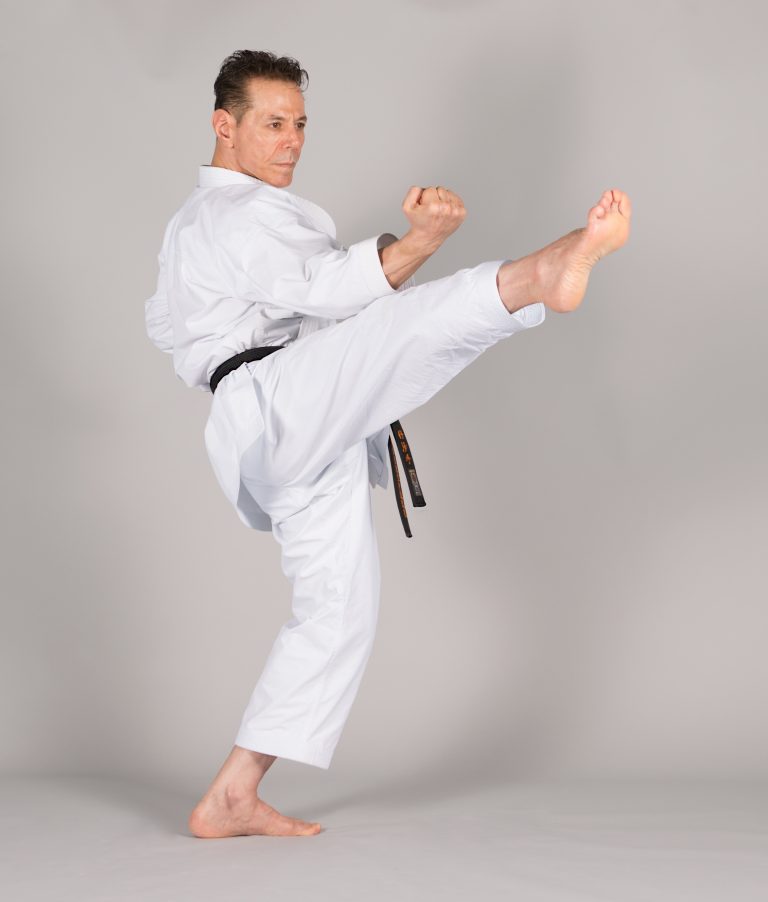Karate lernen für Kinder
Karate ist eine der bekanntesten Kampfsportarten der Welt. Sie stammt aus Japan und wurde entwickelt, um den Körper und den Geist zu stärken sowie eine effektive Selbstverteidigungsmethode zu bieten. Viele Eltern möchten ihren Kindern die Vorteile dieser spannenden Sportart näherbringen, aber sie sind oft unsicher, wie sie damit beginnen sollen.
Die Vorteile von Karate für Kinder
Karate bietet eine Vielzahl an Vorteilen für Kinder, insbesondere wenn sie in einem jungen Alter damit beginnen:
- Körperliche Gesundheit: Karate verbessert die körperliche Gesundheit durch Krafttraining, Stretching und Ausdauerübungen.
- Selbstverteidigung: Karate ist eine effektive Selbstverteidigung, die den Kindern das Selbstbewusstsein gibt, um im Notfall zu reagieren.
- Konzentration: Karate erfordert ein hohes Maß an Konzentration und Disziplin, was Kindern bei der Entwicklung ihrer Fähigkeit zur Fokussierung hilft.
- Soziale Kompetenzen: Karate fördert den Teamgeist, das Verantwortungsbewusstsein und die Ehrlichkeit.
- Selbstbewusstsein: Durch das Erreichen von Zielen und das Überwinden von Herausforderungen steigert Karate das Selbstbewusstsein der Kinder.
Wie können Kinder Karate lernen?
Es gibt mehrere Möglichkeiten, wie Kinder Karate lernen können:
- Karate im Verein: Die meisten Städte haben Karatevereine, die speziell für Kinder konzipiert sind. Hier können sie im Team trainieren und von professionellen Trainern betreut werden.
- Privatunterricht: Es gibt auch viele private Karatelehrer, die Kurse für Kinder anbieten. Diese Option kann teurer sein, bietet jedoch viel intensivere Betreuung und individuelles Training.
- Karate zu Hause: Es gibt auch Online-Kurse und Lehrvideos, die Kindern das Karate-Training zuhause ermöglichen. Diese Option ist kostengünstiger, erfordert jedoch Disziplin und Motivation von Seiten der Kinder.
Welche Ausrüstung benötigen Kinder für den Karate-Unterricht?
Für den Karate-Unterricht benötigen die Kinder spezielle Ausrüstung:
- Karate-Anzug: Ein Karate-Anzug (auch Gi genannt) ist ein weißer Anzug aus Baumwolle, der speziell für Karate entwickelt wurde.
- Schützer: Kinder benötigen Schützer für die Hände, Füße und den Kopf, um sich vor Verletzungen während des Trainings zu schützen.
- Gürtel: Jeder Karate-Schüler beginnt mit einem weißen Gürtel und steigt mit zunehmendem Fortschritt in den Farben auf.
Die Bedeutung von Disziplin im Karate-Unterricht für Kinder
Disziplin ist eine der grundlegenden Eigenschaften im Karate-Unterricht. Kinder lernen, Verantwortung für ihr eigenes Training zu übernehmen und sich an die Regeln und Techniken zu halten. Ein Karate-Unterricht kann auf diese Weise dazu beitragen, dass Kinder ihre unruhige Energie in produktive Aktionen umwandeln und dadurch Respekt für andere und für sich selbst entwickeln.
Verantwortungsvolle Elternschaft im Karate-Unterricht für Kinder
Eltern müssen sich während des Karate-Unterrichts für ihre Kinder verantwortlich fühlen. Sie sollten sicherstellen, dass ihr Kind eine angemessene Ausrüstung trägt und die Regeln im Unterricht befolgt. Außerdem sollten sie mit dem Trainer kommunizieren und die Aktivität und den Fortschritt ihres Kindes im Auge behalten.
Fazit
Karate ist eine großartige Möglichkeit für Kinder, gesund zu bleiben, ihre Fähigkeiten in Selbstverteidigung und Konzentration zu entwickeln und ihr Selbstbewusstsein zu stärken. Es gibt viele Möglichkeiten, wie Kinder Karate lernen können, und als Eltern müssen wir sicherstellen, dass unser Kind die richtige Ausrüstung hat und im Unterricht diszipliniert und verantwortungsvoll handelt. Wenn wir all diese Punkte beachten, wird das Karate-Training für Kinder eine sichere und lohnende Erfahrung sein.
The Most Frequently Asked Questions About ‚Karate Lernen für Kinder‘
If you’re considering enrolling your child in karate classes, you likely have a lot of questions. Karate can be a great way for children to build physical fitness, confidence, discipline, and self-defense skills. However, before you start searching for classes, it’s important to understand the basics of karate and how it can benefit your child. In this post, we will answer some of the most frequently asked questions about starting karate for kids.
What Is Karate?
Karate is a martial art that originated in Okinawa, Japan. It involves using specific techniques to defend oneself from attackers by utilizing strikes, punches, kicks, and blocks. Karate is not only a physical activity, but it is also a mental one. It requires focus, discipline, and concentration. Many people practice karate for fitness, self-defense, and personal growth.
What Is the Right Age for Kids to Start Karate?
The right age for kids to start karate usually depends on the child’s physical and emotional development. Generally, kids can start karate as young as 4 years old. At that age, they can respond well to the discipline and structure of a martial arts class. However, some children might not be emotionally mature enough to handle the pressure and may not enjoy the physical nature of the classes. It’s important to talk with your child and assess their readiness to start karate before signing them up for classes.
What Are the Benefits of Karate for Kids?
Karate has a range of benefits for kids, including:
– Physical Fitness: Karate classes help kids improve their stamina, strength, flexibility, and balance.
– Self-Defense Skills: Karate classes teach kids how to defend themselves in dangerous situations.
– Confidence: Through training, kids learn to believe in their abilities and develop a sense of self-confidence.
– Discipline: Karate classes require strict discipline and focus, which can help children develop self-discipline.
– Respect: Karate schools teach students to respect their instructors and peers.
– Focus and Concentration: Karate classes demand mental focus and concentration. Kids who practice karate often see improvements in their ability to concentrate and complete tasks.
What Is the Typical Structure of a Karate Class for Kids?
Karate classes for kids usually begin with a warm-up that includes exercises such as jumping jacks, push-ups, and stretches. After warming up, the class moves on to training techniques such as kicking or sparring. Classes usually end with a cool-down activity and stretching.
How Do I Find the Right Karate School for My Child?
When looking for a karate school for your child, check the school’s accreditations and the instructors‘ qualifications. Also, ask for referrals from other parents whose children attend karate classes. Visiting the school and observing a class is a great way to see if the school is right for your child.
What Equipment Is Needed for Karate Classes?
For training, kids need a karate uniform, also known as a gi. This uniform is usually available for purchase from the school. Kids may also be required to wear headgear or shin guards for sparring. It’s important to check with the school to see what equipment is needed.
How Often Should Kids Attend Karate Classes?
The frequency of karate classes for kids depends on the child’s age, level, and goals. Usually, kids attend classes once or twice a week. However, more advanced students may attend more regular classes for additional training.
Will Karate Make My Child Aggressive?
Karate teaches respect for others and focuses on self-defense, not aggression. Karate classes help kids develop self-control and discipline.
Is Karate Safe for Kids?
Karate is generally safe for kids when taught by qualified instructors in a safe environment. However, as with any sport, there is always a risk of injury. To help minimize the risk of injury, make sure your child wears the appropriate protective gear and follows their instructor’s safety instructions.
Conclusion
Karate can be an excellent activity for kids, providing them with not only improved physical fitness but also a sense of discipline, focus, and respect. Understanding the basics of karate can help ensure your child has a positive experience in class. By starting your child’s karate journey, you can help them develop self-confidence and the skills they need to protect themselves in dangerous situations.
Inhaltsverzeichnis





